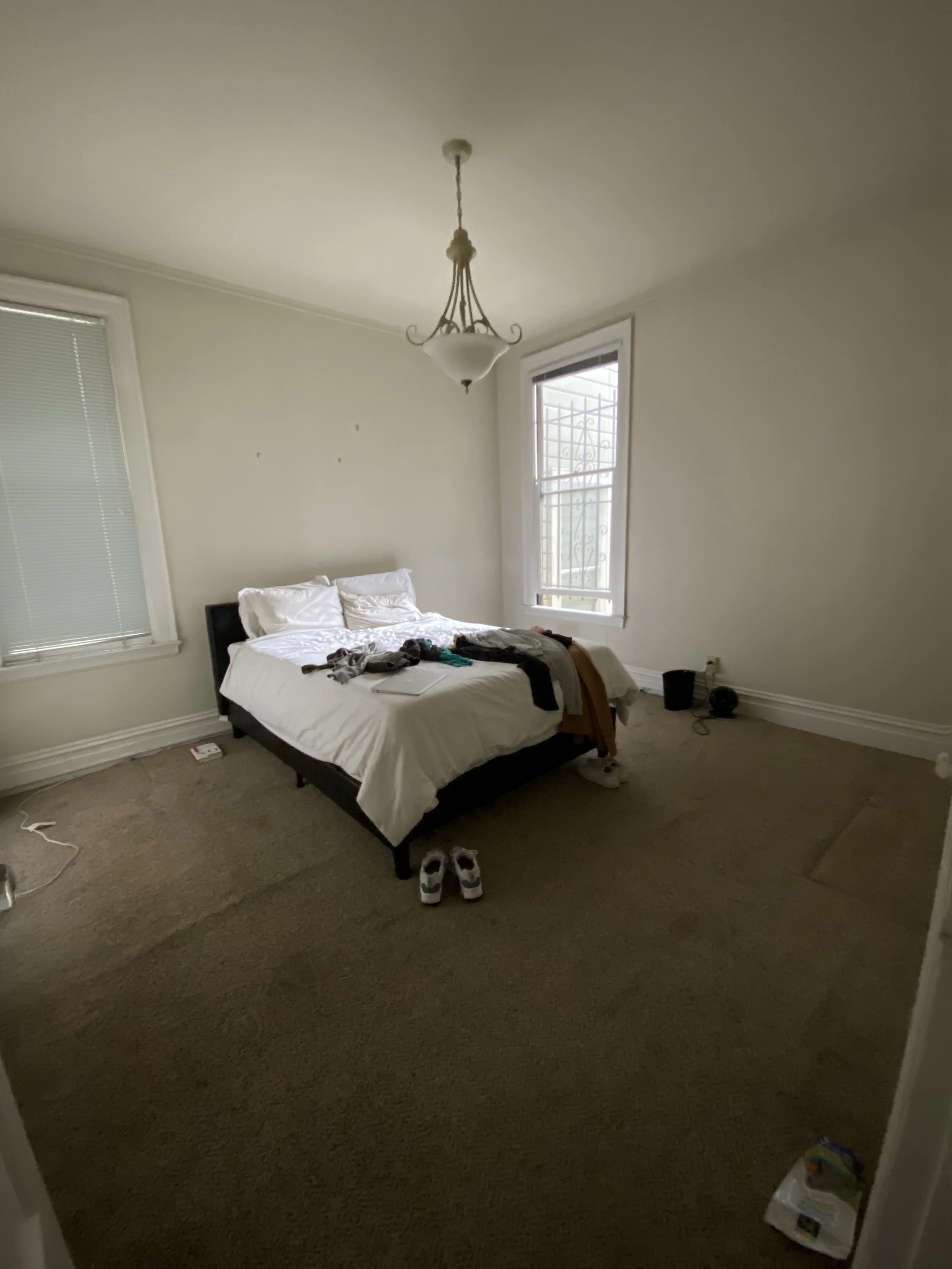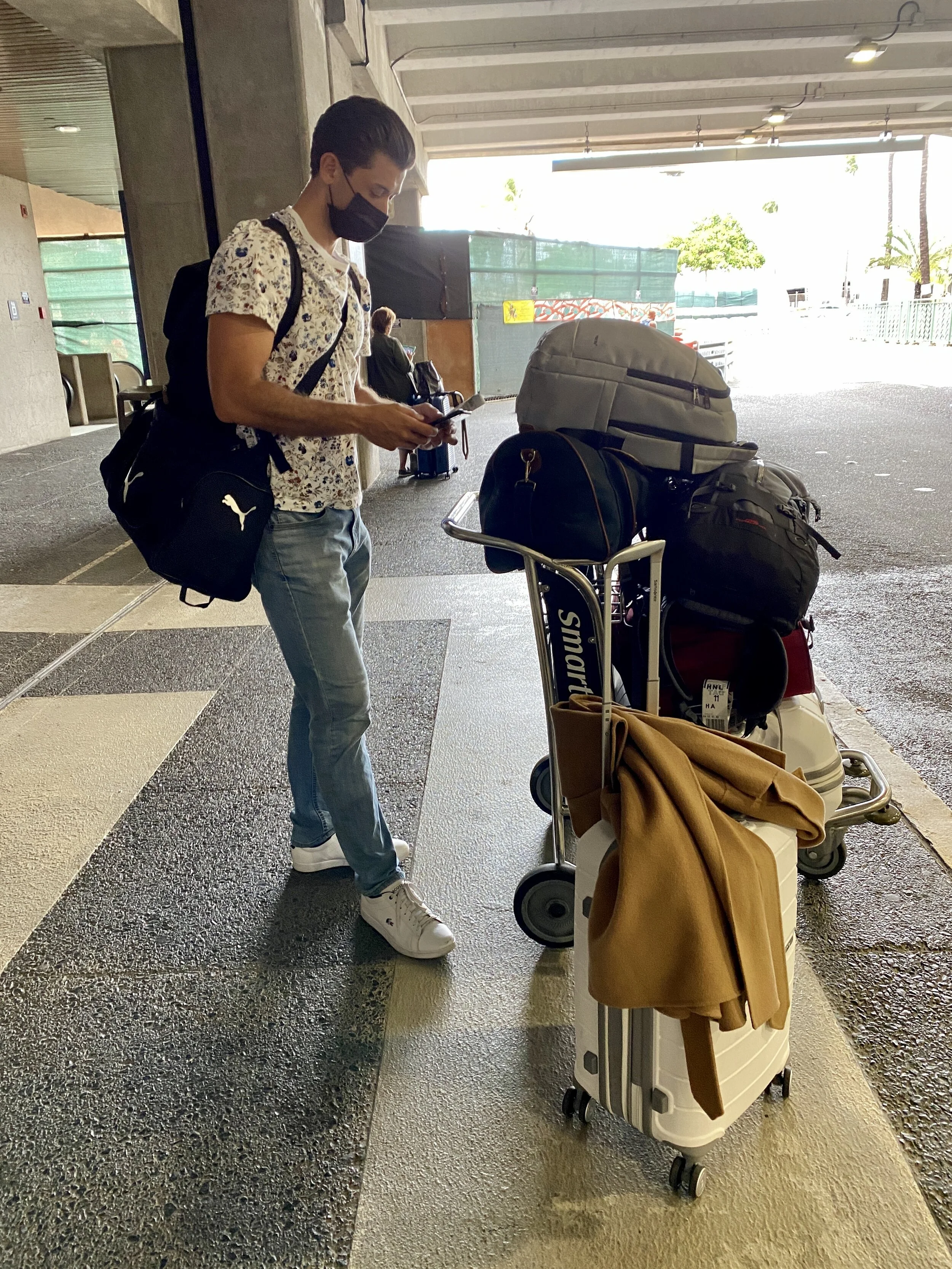Waste Reduction Tips While Moving: How to Get Rid of Things The Sustainable Way
My recently redecorated room, right before we decided to temporarily relocate due to COVID.
Never in my life have I felt such a strong sense of individual responsibility to protect the planet than when I began the undertaking of cleaning out a house I’d lived in for five years.
Oh, the things left behind in that apartment. Moving in fresh out of college, the back of the closet held boxes and boxes of costumes worn throughout our university days and into our early 20s. The number of “swag” water bottles collected from various companies over the years. The mismatched tupperware, old electronics, random books and art supplies, purchased and quickly abandoned hobbies, bags of clothes that never made it to goodwill…
I decided on a temporary pandemic relocation that would take place 3 weeks after pulling the trigger on the decision, and I got to work that night cleaning out the areas of the apartment most riddled with a half decade of half-possessed wares. I came out on the other side with over 15 waste reduction tips for anyone looking to move the sustainable way during this pandemic (or anytime, really).
As I started sorting through the items, it became clear that, although much of the contents of my home had little use to me on my new adventure, they were much more than trash. In fact, so much of it would be received ecstatically by either friends or strangers.
This notion, paired with the pandemic’s forced closure of many donation sites, inspired me to dedicate much of my move to the finding and placing of my household objects in loving new homes, where they would have a second life and make other people as happy to own them as I have been.
Waste reduction tips: How to get rid of your things before a move
I am proud to report that, upon leaving my apartment this morning, I’d produced only about one large garbage bag of trash. Everything else was either packed, stored, shipped, sold, donated or composted.
Benefits of reducing waste during a move
Although it requires a lot more effort than simply hulking your unwanted items into the trash, I found there were a number of unexpectedly awesome perks to actively reducing my waste throughout my move:
You can make some serious cash. I made over $1K by selling items in my apartment on Facebook Marketplace. I’d never done it before, but the platform was so easy to learn and use and extremely well optimized to get your items out the door. I can’t recommend it enough to those trying to re-sell their household items. Some items that sold easily were my desk, plants, TV stand, TVs, dresser, nightstands, lamps, and small sofas.
Makes you more mindful of your own consumerism. One of the most important learnings for me has been that we 1) buy or take home so many low-quality items that we don’t intend to keep long term and 2) so many items that we only think to buy new can be bought for like-new condition through your local community. I will definitely be checking FB Marketplace, NextDoor and Craigslist before making any major furniture or household purchases in the future, and I plan to be more thoughtful about each new online purchase I make, as I tend to be most flippant in that setting.
You’ll meet so many lovely people. At first, I was a bit nervous to have a revolving door of strangers coming to my house to pick up different items. But every single interaction I had, with people of all different backgrounds and profiles, were pleasant. I loved chatting with newlyweds about how they’d be looking for that one piece of furniture for weeks now, or young 20-somethings who’d just moved into the city or graduated college, or parents who were picking up items for their teenage children, who would be conducting their whole first half of the school year online. It was such a beautiful exercise in human connection and a reminder that we are far more kind, similar, and united than we often feel with absolute strangers.
Good for the planet. This one is (hopefully) the most obvious. The US Environmental Protection agency writes: “The most effective way to reduce waste is to not create it in the first place. Making a new product requires a lot of materials and energy - raw materials must be extracted from the earth, and the product must be fabricated then transported to wherever it will be sold. As a result, reduction and reuse are the most effective ways you can save natural resources, protect the environment and save money.”
Tips for making money while reducing waste
Sell your items on Facebook Marketplace. I made over $1,000 doing this. Start a few weeks earlier than your move, set prices aspirationally, and then slowly lower as you get closer to your move in order to “move your product” more quickly.
Sell your clothes to local consignment shops. I made $100 doing this and was able to donate the clothes I couldn’t sell. Call first to see what items the shop is currently buying, and their preferred process for receiving your items.
Sell your books to local bookstores. I made $30 doing this and was able to donate the books I couldn’t sell.
Host a “virtual garage sale” on your Instagram or Facebook Stories. I got rid of a plant basket, foot rub machine, and some tools that way. Plus, I got to see the friends who stopped by to pick them up!
My room near the end of my waste reduction journey!
Tips for donating during the pandemic
Little do many of us know, but donating is only a step above tossing your items in the trash. The fact is, there is still a ton of energy, resources and waste involved in the upcycling and redistribution process. One of the best ways to donate is to find individuals who are in need of specific items, and coordinate getting your items to that person or community directly.
Ask your community who’s accepting donations. If you’re having trouble donating items, post to your Nextdoor community to see where others are having luck. I got over 30 helpful responses when I did this.
Seek out individuals in your community who may be part of smaller donation collection agencies. For example, I sold some silverware and a backpack to a woman who buys used items cheap and sends them back to El Salvador, where most clothes and household items can have a full second life. I ended up contacting her the day before my move to donate all the final items I couldn’t or didn’t try to sell.
Gift your friends “personal brand packages.” Compile items that you know your friends would love & create goodie bags for those sticking around. I had so much fun creating themed bags for my friends around their particular interests.
Tips for reducing food waste before a move
Eat or compost any open/perishable food before you leave. I was feeling so stressed about eating all of my food before leaving, and then someone suggested composting! This felt like the perfect way to ensure the food ultimately turned back into a productive resource for our planet. I did also try to eat as much of my food as possible, and only ended up needing to compost a bin or two’s worth of open fridge, freezer and pantry items.
Take what you can with you. I ended up taking small baggies of tea, coffee, vitamins, protein powder, snacks, and almond butter with me on my move. This helped ensure I had some essential and/or high cost items on hand, as well as reduced waste.
Donate or give away any sealed, less perishable items. Food insecurity is a huge issue within the pandemic, so there is always a local place willing to take your unopened food items and redistribute to the hungry.
This is all we ended up bringing on our temporary move to Hawaii - between the two of us!
All in all, I started my move feeling so much lighter and more fulfilled than had I dumped my life in the trash. Yes, it was time-consuming and stressful in certain moments, but worth it for so many reasons. I’ll leave you with some parting tips:
Start early. At least 2-3 weeks before your move.
Seek to resell. Even if only for a few dollars; this helps ensure there’s a legitimate need!
Match items to individual needs. Remember, the best way to get rid of an item is to match it with someone who needs it.
Donate what you can’t sell or match. Just make sure it’s in good, sellable condition, or you risk created more resource strain.
Store or pack items you know you’ll continue to use. When taken out of their original packaging, many items can pack way down to fit in suitcases or moving boxes.
Track your total waste to stay mindful. I used one garbage bag throughout the move, which kept me motivated not to exceed it.
I’m new to the sustainable / conscious consumer lifestyle, but this process has kickstarted a desire to learn and practice more. If you’re new like me, and feeling inspired, share a comment with one tip you plan to try to implement! If you’re a seasoned sustainability pro, I’d love to know any additional waste reduction tips you can share!
Up Next: From Conflicted to Conscious Consumer: How To Build & Enjoy a Mindful Shopping Habit



